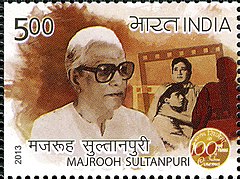
Picture: Social Media
Majrooh Sultanpuri, his original name was Asrar ul Hassan Khan and he was born on October 1, 1919, in Sultanpur, Uttar Pradesh. Majrooh was one of the most prolific and influential lyricists in the history of Indian cinema. He is celebrated for his poetic prowess and his ability to craft lyrics that resonated with audiences across generations. Majrooh Sultanpuri’s contributions to the world of Hindi film music are considered timeless and iconic.
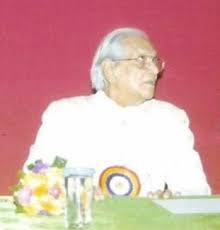
Picture: Social Media
Majrooh Sultanpuri early career in the world of Poetry:
Majrooh Sultanpuri’s early life was marked by his love for poetry and literature. His passion for writing led him to adopt the pen name “Majrooh,” which means “Injured,” “Wounded.” His talent for Urdu poetry and lyrics became evident at a young age, and he began writing verses that reflected his keen observations of life and human emotions.
He was born during the era of ‘Khilafat Movement,’ his father, a police officer, was not too keen on his son receiving English education and Majrooh was therefore sent for traditional ‘Madrasa education.’ He thereafter joined Lucknow’s Takmeel-ut-Tib College of Unani medicine (Greek System of Medicine).
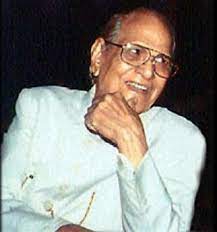
Picture: Social Media
Majrooh Sultanpuri Career in Lyricism:
He was a disciple of the then top name in Urdu Mushairas Jigar Moradabadi. In 1945 he visited Bombay (now Mumbai) with his ustad Jigar Moradabadi for a Mushaira organised by Shabboo Institute. His ghazals and shayari were highly appreciated by listeners. One of the impressed listeners was film producer and director A.R. Kardar. He contacted organisers who helped him to meet Majrooh. However, Majrooh refused to write for films because he didn’t think very highly of them. But Jigar Moradabadi persuaded him, saying that films would pay well and would help Majrooh to support his family. Kardar introduced him to music composer Naushad who put the young shayar to test.
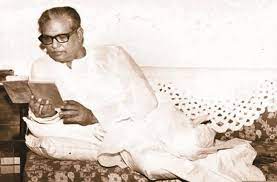
Picture: Social Media
He gave Majrooh a tune and asked him to write something in the same metre, and Majrooh wrote “Jab Usne Gesu Bikhraye, Badal Aaye Jhoom Ke….” Naushad liked his poetry and Majrooh was signed on as the lyricist of the film Shah Jehan (1946).
Film Shah Jehan (1946) was followed by S. Fazil’s Mehndi, Doli (1947), Naatak (1947) and Anjuman (1948) but his major breakthrough came with Mehboob Khan’s Andaz (1949) and Shaheed Latif’s Arzoo.
He was sentenced to two years’ jail due to his politically-charged poems in 1949. Having to start his film career afresh, Majrooh finally broke through again with the Guru Dutt films Baaz (1953).
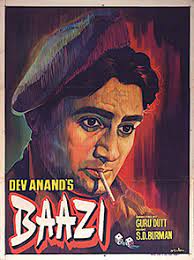
Majrooh Sultanpuri worked with many music directors like Anil Biswas, Naushad, Ghulam Mohammed, Madan Mohan, O. P. Nayyar, Roshan, Salil Chowdhury, Chitragupt, N. Datta, Kalyanji-Anandji, Laxmikant-Pyarelal and R. D. Burman.
Majrooh Sultanpuri went on to write lyrics for popular films throughout the 1950s. Along with Khumar Barabankvi, Faiz Ahmed Faiz, Majrooh was considered the most notable ghazal writer.
Majrooh won his only Filmfare Best Lyricist Award for the song “Chahunga Main Tujhe Saanj Savere ” from the film Dosti in 1965. He was also awarded the Dadasaheb Phalke Award in 1993 and became the first lyricist to win the prestigious award. He also received the Iqbal Samman from the Madhya Pradesh government and the Sant Gyaneshwar Puraskar of the Maharashtra government.
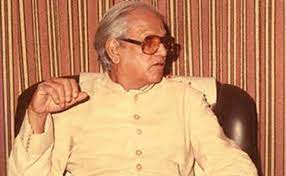
Picture: Social Media
Majrooh Sultanpuri’s Notable Collaborations:
Majrooh Sultanpuri collaborated with some of the most legendary music composers and playback singers in the Indian film industry. His partnership with composers like S.D. Burman, R.D. Burman, and Shankar-Jaikishan produced numerous chart-toppers. His lyrics were sung by iconic playback singers such as Lata Mangeshkar, Kishore Kumar, and Mohammed Rafi, among others.
Some of Majrooh Sultanpuri’s most famous songs include:
“Chahunga Main Tujhe Sham Savere” from “Dosti” (1964)
“Waadiyan Mera Daman” from “Abhilasha” (1968)
“Gum Hai Kisi Ke Pyar Mein” from “Rampur Ka Lakshman” (1972)
“Thade Rahiyo O Bake Yar” from “Pakeezah” (1972)
“Chura Liya Hai Tumne Jo Dil Ko” from “Yaadon Ki Baaraat” (1973)
“O Hansini” from “Zahreela Insaan” (1974)
“Chand Mera Dil, Chandni Ho Tum” from “Ham Kisi Se Kam Nahin” (1977)
“Papa Kahte Hain Bada Nam Karega” from “Qayamat Se Qayamat Tak” (1988)
“Pahla Nasha Pahla Khumar” from “Jo Jeeta Wohi Sikandar” (1992)
His ability to convey deep emotions through his words made him a favourite among filmmakers and music directors.
His last film as a lyricist was “One 2 Ka 4,” which was released after his death in 2001.
He was honoured with the prestigious Dadasaheb Phalke Award in 1993, one of the highest honours in Indian cinema.
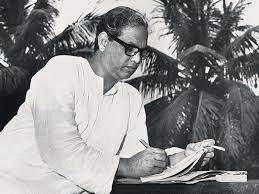
Picture: Social Media
Majrooh Sultanpuri was known for his humble and down-to-earth nature. He had a deep love for Urdu poetry and literature, which he continued to pursue alongside his film career. He was a respected figure in the film industry and among fellow lyricists and poets.
Majrooh Sultanpuri received several accolades for his contribution to Hindi film music. He was honoured with the Filmfare Award for Best Lyricist multiple times, acknowledging his exceptional talent and creativity in the field of lyrics writing.
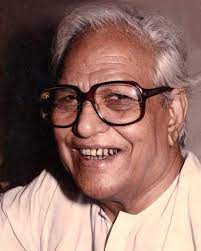
Picture: Social Media
Majrooh Sultanpuri’s legacy in the world of Indian music is enduring. His timeless lyrics continue to be cherished by audiences, and his work remains an integral part of the Hindi film music canon. His ability to evoke emotions through his verses and his dedication to the craft of lyricism have left an indelible mark on the Indian film industry. Majrooh Sultanpuri passed away on May 24, 2000, but his words continue to resonate with generations of music lovers.